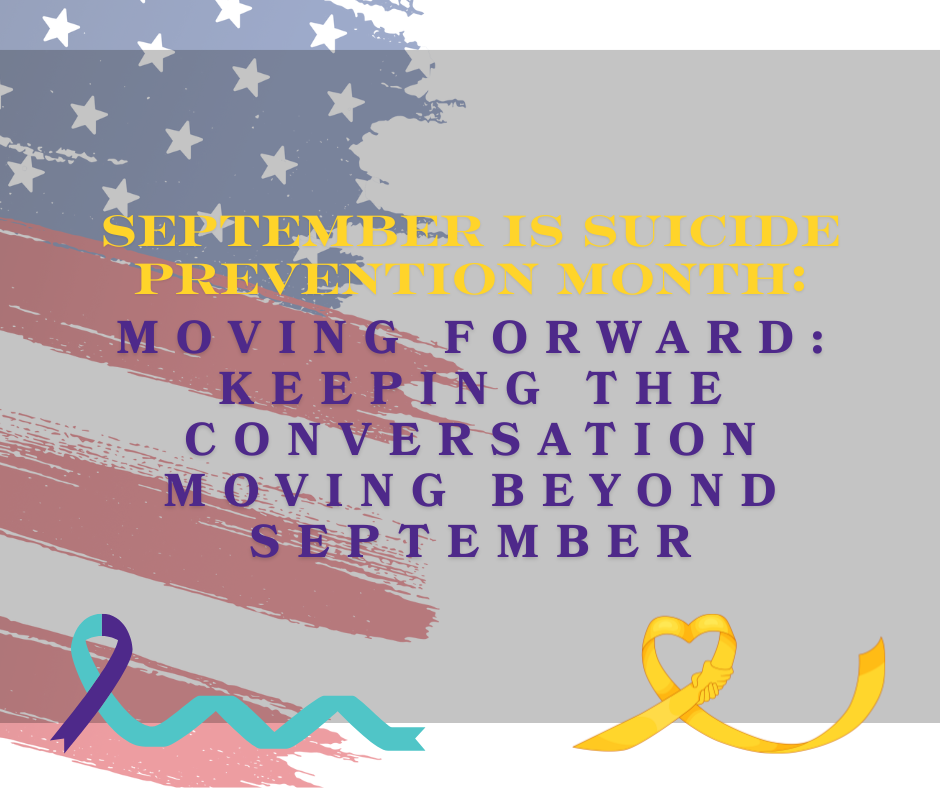April: Sexual Assault Awareness Month and Military Sexual Assault Awareness
- Moderators
- Apr 12, 2025
- 4 min read

April is an important month for reflection, education, and action—Sexual Assault Awareness Month (SAAM)—a time to shine a light on the pervasive issue of sexual violence, its impact on individuals and communities, and the steps we can all take to prevent it. It's a month to show support for survivors, educate the public, and raise awareness about the crucial need for systemic change. This year, a particular focus is placed on Military Sexual Assault Awareness, bringing attention to the unique and urgent need for accountability, justice, and support for service members who face sexual violence.
The Significance of Sexual Assault Awareness Month
Sexual assault affects millions of individuals every year, regardless of gender, age, race, or background. According to the National Sexual Violence Resource Center (NSVRC), one in five women and one in 71 men will experience sexual assault in their lifetime. However, these numbers may not fully capture the scope of the problem, as many incidents go unreported. That's why Sexual Assault Awareness Month is so vital—it provides an opportunity to bring this issue to the forefront and start conversations about how we can build a safer, more respectful world for everyone.
During this month, advocacy groups, survivors, and allies come together to support one another, raise awareness, and push for policy changes. It’s a time to acknowledge the pain and trauma caused by sexual assault, but also to empower people with the knowledge and resources they need to prevent future violence.
The Military and Sexual Assault
While sexual violence is a widespread issue across all sectors of society, there is a unique and often overlooked crisis within the military. Military Sexual Assault Awareness is crucial to understand, as the military has long struggled with high rates of sexual assault and harassment within its ranks. According to a report by the Department of Defense, thousands of service members are impacted by sexual assault each year, with many facing the added barriers of a close-knit and hierarchical institution that can make reporting and seeking justice especially difficult.
The culture of the military, which often emphasizes toughness and loyalty, can inadvertently silence survivors and discourage them from speaking out. Many fear retaliation, stigmatization, or career repercussions if they report incidents of sexual violence. This makes addressing military sexual assault particularly urgent—survivors must be provided with not only the support they need to heal but also a system of accountability and justice that ensures perpetrators are held responsible.
The Need for Change: Prevention and Support
Sexual assault is preventable. Ending this epidemic requires a change in attitudes, behaviors, and policies both within the military and society at large. Here are some key areas where change is needed:
Prevention Education: One of the most effective ways to reduce sexual assault is through education. Teaching individuals about consent, boundaries, and respect is crucial in both civilian and military settings. For the military, tailored training programs that address the unique dynamics and power structures within the armed forces can help instill a culture of respect and equality.
Support for Survivors: Survivors of sexual assault need to know they are supported. The military must ensure that service members have access to confidential support services, including counseling and advocacy. Furthermore, survivors must feel safe when reporting incidents without fear of retaliation.
Accountability: It's essential that perpetrators of sexual violence, regardless of rank or position, are held accountable for their actions. Stronger policies, oversight, and legal protections are needed to ensure that military leaders take swift and appropriate action when sexual assault is reported.
Community Involvement: Ending sexual violence is a collective effort. Military leaders, lawmakers, and communities must come together to create systems that support survivors and prevent violence. This includes fostering environments in which all individuals feel empowered to speak up when they witness or experience inappropriate behavior.
How You Can Make a Difference
Whether you are a civilian or a service member, you have a role in ending sexual violence and supporting survivors. Here are some ways you can get involved during Sexual Assault Awareness Month:
Educate Yourself and Others: Learn more about sexual assault prevention and the specific challenges of military sexual assault. Share information on social media, attend community events, and speak with others about the importance of consent and respect.
Support Survivors: If you know someone who has experienced sexual violence, offer your support. Let them know they are believed and that help is available. Encourage them to seek the resources and care they need, whether it’s counseling, legal support, or advocacy.
Speak Out Against Sexual Violence: If you witness inappropriate behavior, speak up. Silence only enables the cycle of violence to continue. By intervening, you can help create safer spaces for everyone.
Support Legislation: Advocate for policies that improve the military’s handling of sexual assault cases and ensure that survivors receive the care and justice they deserve. This includes supporting efforts for better reporting procedures, stronger legal protections, and improved military culture.
Moving Forward
As we recognize Sexual Assault Awareness Month and Military Sexual Assault Awareness, it’s important to remember that progress is possible. Change is often slow, but with continued advocacy, education, and policy reform, we can create a world where sexual violence is no longer tolerated and survivors are empowered to heal and seek justice.
Together, we can build a society—both civilian and military—where everyone is respected, valued, and protected from harm.
Resources for Support:
National Sexual Assault Hotline (RAINN): 1-800-656-HOPE (4673)
Military Sexual Trauma Support: Department of Veterans Affairs (VA) offers resources for veterans.
Local Support Groups and Helplines: Reach out to local organizations for advocacy and counseling.
Let’s continue the conversation, break the silence, and stand with survivors all year long.



Comments